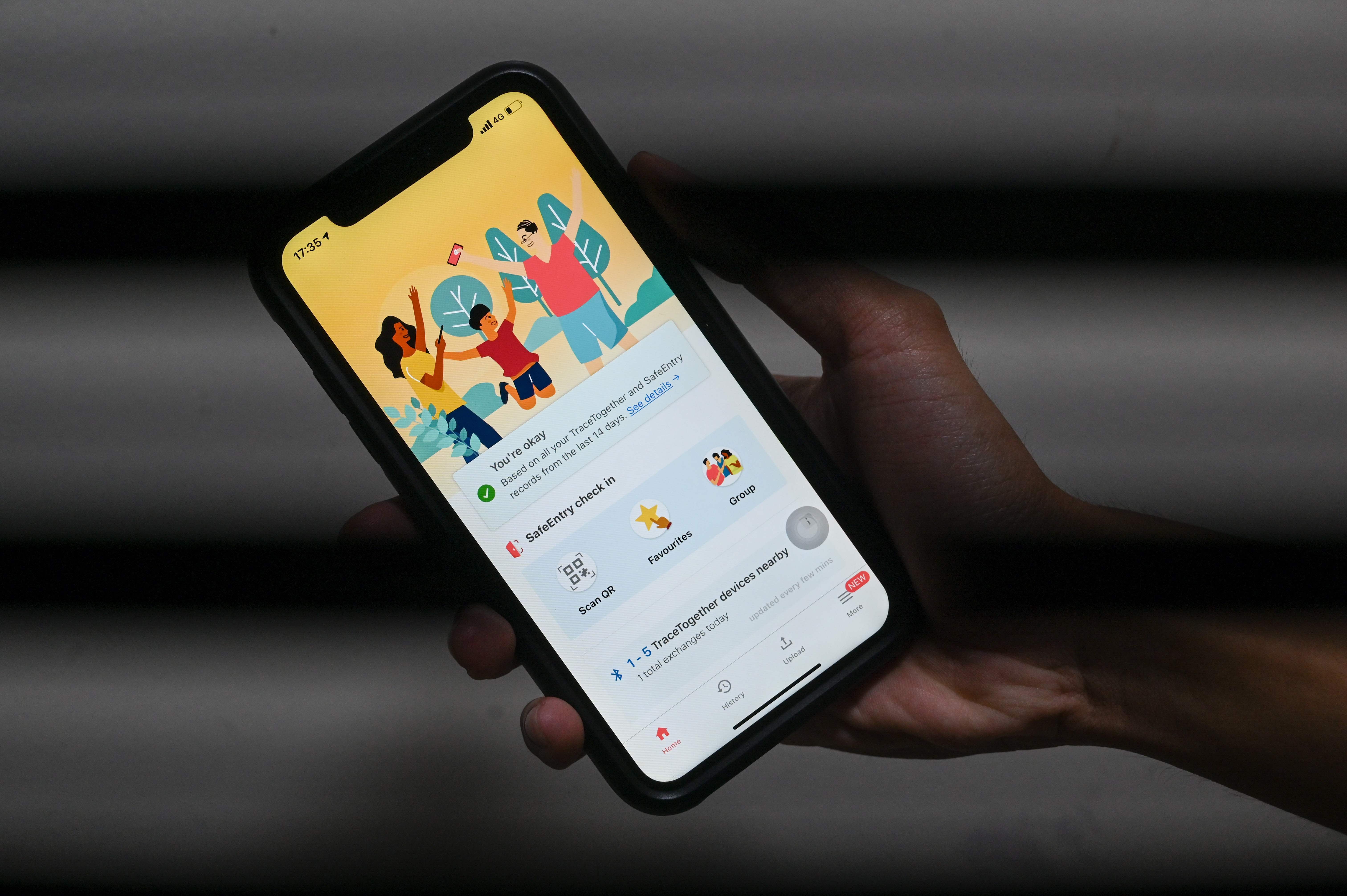Singapore Covid contact-tracing data made accessible to police force
The system is one of the most widely used in any nation, taken up by nearly 80 percent of the 5.7 million population

Your support helps us to tell the story
From reproductive rights to climate change to Big Tech, The Independent is on the ground when the story is developing. Whether it's investigating the financials of Elon Musk's pro-Trump PAC or producing our latest documentary, 'The A Word', which shines a light on the American women fighting for reproductive rights, we know how important it is to parse out the facts from the messaging.
At such a critical moment in US history, we need reporters on the ground. Your donation allows us to keep sending journalists to speak to both sides of the story.
The Independent is trusted by Americans across the entire political spectrum. And unlike many other quality news outlets, we choose not to lock Americans out of our reporting and analysis with paywalls. We believe quality journalism should be available to everyone, paid for by those who can afford it.
Your support makes all the difference.Singapore’s government has announced its police force will be able to obtain data from its coronavirus contact-tracing technology to use for criminal investigations.
The TraceTogether system currently in place is one of the most widely used in any nation, taken up by nearly 80% of the 5.7 million population, and so the decision is likely to raise privacy fears.
When concerns were raised previously about the nature of the phone app tracing, the authorities assured citizens that the data is encrypted, stored locally and only tapped by authorities if an individual tests positive for coronavirus.
But now, Minister of State of Home Affairs Desmond Tan has stated “The Singapore Police Force is empowered ... to obtain any data, including TraceTogether data, for criminal investigations.”
Questioned about the TraceTogether privacy statement by an opposition MP, Mr Tan continued: “We do not preclude the use of TraceTogether data in circumstances where citizens' safety and security is or has been affected, and this applies to all other data as well.”
Singapore has been ruled by the same party since its independence in 1965 and is known for its widespread surveillance, restrictions on public assembly and tight legislation.
Prime Minister Lee Hsien Loong has previously said privacy concerns about the technology must be balanced against the need to curb the spread of the virus and keep the economy afloat.
Singapore has recently eased social restrictions as the government turns its focus to retaining the island’s status as a global business hub and limiting the current recession.
The city-state has only reported a handful of coronavirus cases over the last few months through intense social distancing measures, stringent testing and strict quarantines.
Its success in curbing infections has won international praise, including from the World Health Organisation and the World Economic Forum.
The worry surrounding privacy in Singapore has been mirrored in other countries across the world. Amongst the governments utilising surveillance tracking the most are China, Israel, India, Bahrain, Kuwait and Norway, according to IFSEC international.
Amnesty International’s Security Lab has reviewed a number of contact tracing apps, and highlighted those used in Bahrain, Kuwait and Norway as “highly invasive surveillance tools which go far beyond what is justified in efforts to tackle coronavirus.”
Countries restricted by pre-existing legislation like the EU’s General Data Protection Regulation (GDPR), are less likely to be found “intensely” tracking their citizens.
With additional reporting from Reuters



Join our commenting forum
Join thought-provoking conversations, follow other Independent readers and see their replies
0Comments